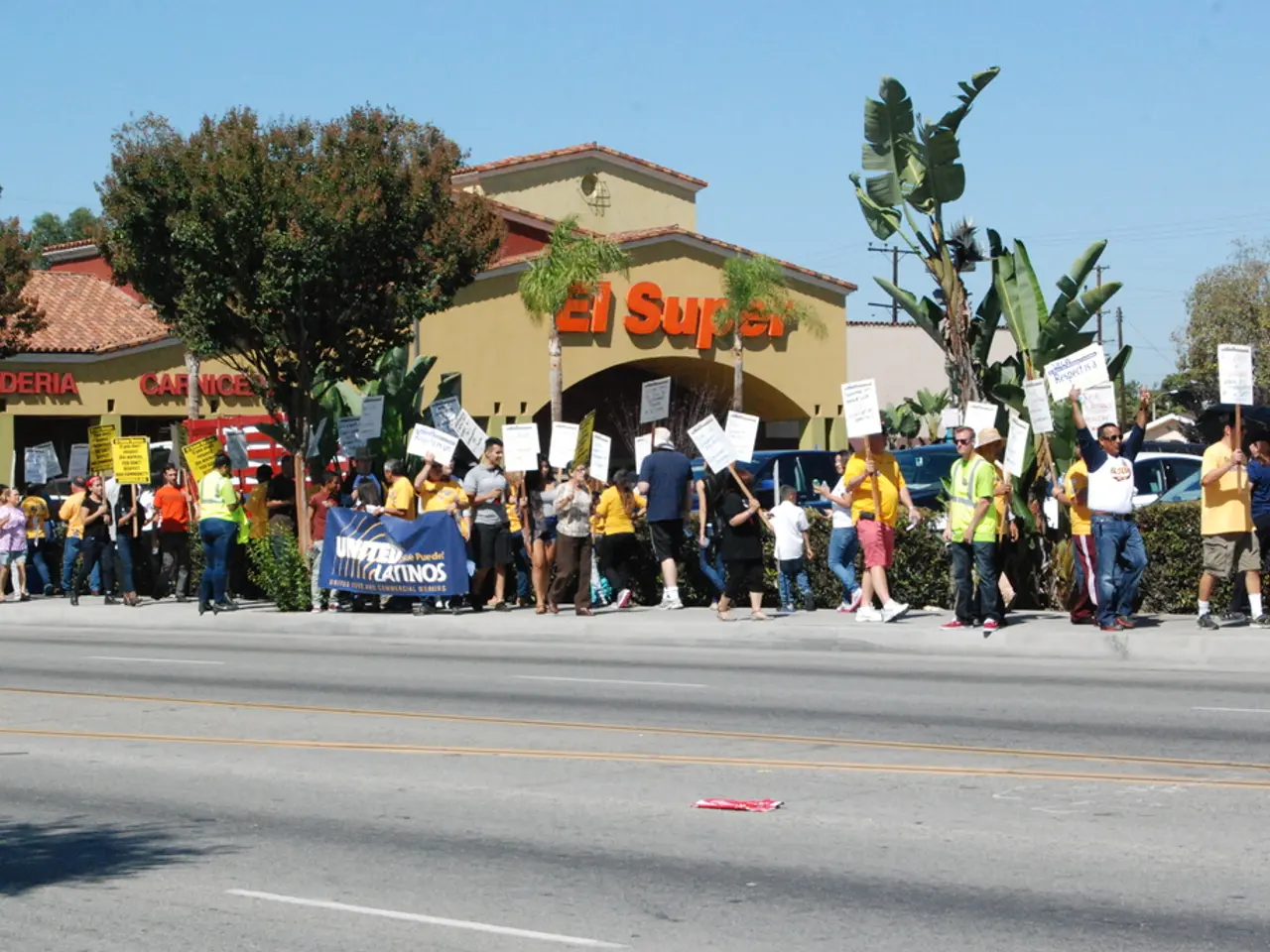Text Message Politics: Rationale Behind Political Campaigns Employing SMS Communication
In the fast-paced world of political campaigns, text messaging has emerged as a powerful tool for effective communication with voters. This direct, cost-effective, and high-impact method enables personalised outreach, rapid message delivery, and high engagement rates.
Common challenges in political text messaging include avoiding spam perceptions, managing opt-outs, maintaining up-to-date contact lists, and ensuring message relevance. To address these issues, campaigns must comply with regulations regarding consent, opt-out mechanisms, timing restrictions, and data privacy.
Platforms used for political text messaging include SMS marketing services, automated texting software, and integrated CRM systems. Ensuring messages display correctly on all devices improves readability and engagement. Frequency of political text messages depends on the campaign phase but should avoid overwhelming recipients, typically a few messages per week.
Campaigns build a text messaging list through voter sign-ups at events, online forms, social media promotions, and data partnerships. Messages sent in political text campaigns include voter registration reminders, polling location information, event invitations, fundraising appeals, and policy updates.
Political text messaging supports multiple campaign objectives such as voter registration reminders, polling location and election day reminders, fundraising appeals, volunteer coordination, and rapid dissemination of campaign updates. Political campaigns also benefit from using automated scheduling to deliver messages at optimal times, respecting different time zones, helping maintain consistent voter engagement.
One way to get in touch is by filling out the online form on the site or giving a call at +919848321284. Protecting personal data, securing consent, and complying with data protection laws are critical in political text messaging. Campaigns can avoid being marked as spam by securing proper consent, providing clear opt-out options, and sending relevant, non-intrusive content.
Best practices include personalising messages using data (e.g., merge tags), scheduling texts for optimal timing across time zones, maintaining compliance with Do Not Contact (DNC) regulations via automated DNC list management, and including clear calls to action to track engagement.
The key benefits of using text messaging in political campaigns are its exceptional deliverability and open rates—up to 98% open rate compared to much lower rates for emails or calls—which ensures messages reach and are read by most recipients. Text messaging allows campaigns to send personalised and segmented content tailored to different voter preferences, which increases relevance and response rates. It is cost-effective and scalable, especially when integrated with cloud telephony systems that automate bulk messaging and provide analytics.
Future trends in political text messaging include the use of AI for personalisation, integration with chatbots, multimedia messaging, and real-time analytics. Campaigns handle negative responses to text messages by monitoring replies, responding respectfully, and adjusting messaging strategies. Political text messaging can support fundraising by sending donation requests, campaign updates, and links for easy contributions.
Text messaging is important in political campaigns as it increases engagement and turnout. It can improve voter turnout by sending reminders about election dates, polling locations, and encouraging voters to participate. By leveraging text messaging in political campaigns, campaigns can maximise outreach effectiveness by combining personalised content, compliance, timing, and scalability, while greatly enhancing voter engagement and support mobilisation.
- To capitalize on the benefits of text messaging in politics, political campaigns integrate it with data analytics services to tailor messages to voter preferences, thereby increasing relevance and response rates.
- To avoid spam perceptions and comply with data protection laws, political campaigns ensure they secure proper consent, provide clear opt-out options, and only send relevant, non-intrusive content in text messaging services.
- In the realms of politics and general-news, social media platforms offer the opportunity to promote text messaging sign-ups for political campaigns, expanding the reach of the text messaging list.
- As campaigns enter new phases, they use data analytics to optimize the frequency of political text messages, aiming to strike a balance between high engagement rates and avoiding overwhelming recipients with excessive communication.







